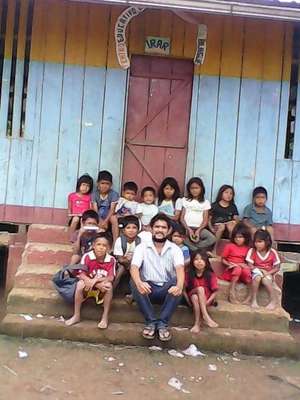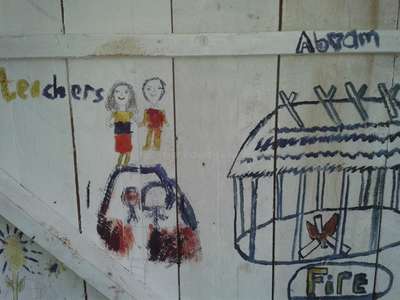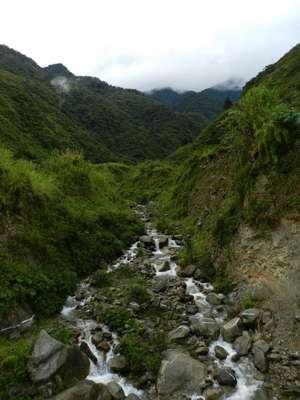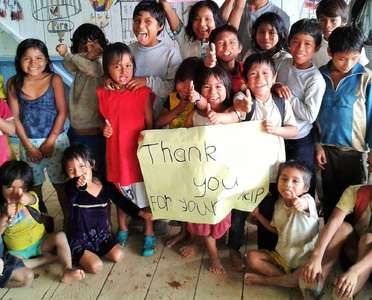
Live and teach among the indigenous Achuar deep inside the Ecuadorian Amazon rainforest
Here at Workaway we now have an amazing 50,000+ opportunities and volunteer exchange projects available in many different parts of the world. From agricultural help, scuba diving, yoga retreats and most things in between, we are so proud to be associated with so many amazing hosts. So, we’ve started a feature to help recognise what a difference cultural exchange can make to travellers and to hosts. Going by the name of ‘Workaway Host of the Month’ we will reveal more of what it is like to be a host and let you into their routines and how their projects have changed since opening their doors to you.
This month, we talk to Samira and Alan with this school project at an Ecuadorian Amazon village. Dedicated to helping protect indigenous culture in the heart of the Amazon, they need volunteers like you and me to help teach English in their remote village. We’re inspired by their project and know you will be too!

We also encourage volunteers to be aware of the differences between themselves and the Achuar. This often manifests itself in unanticipated ways: in conversation, for example, or in some of the values which the Achuar hold dear. We believe however, that the stereotype of indigenous people in Ecuador of being ‘savage’, ‘backward’ or ‘undeveloped’ is wholly unjustified, and we work hard to instill pride, self-knowledge and self-confidence in our students.

However, it goes without saying that living in a remote place like Suwa also brings several physical and mental challenges: the humidity and heat, the persistent mosquitoes, the distance from technology and convenience. The residents here also have to adapt to new visitors from very different places. Therefore, we often suggest delaying entering the classroom for the first few days, until the volunteers have had time to meet all of the families in the community and reflected a little on the sort of teaching they should do.

What are some challenges or advantages to living without some of the conveniences we might be used to?
In our opinion, this is the most amazing place we have ever seen, an ever-changing canvas of bright, dark and earthy colours, an incomparable soundscape of animal sounds (we particularly enjoyed the toads’ choir who’d serenade us every night), and the most dramatic and unpredictable climate we’d ever encountered. In Suwa, nature is the boss, and we are her guests; she will not miss any opportunity to show – depending on the situation – either her power or her profound generosity.

It’s not a perfect solution but it represents their best chance of retaining something of their culture and lands in the face of a rapidly encroaching outside world. If we are to salvage anything from the Amazon as it is now, its preservation must be a priority for us all. By supporting our project you are helping preserve the Achuar culture and preserve the environment.

Big thanks to Samira and Alan for sharing all the interesting insights of their jungle life as a workaway host in the indigenous Amazonian village.
Do you want to be our next WA Host of the month? We are always on the lookout for hosts who have a great story to tell! Email us and you could be in our next feature!
About Workaway
Here at the Workaway team we are lucky enough to witness all the amazing experiences enabled via the site and we'd love to share them with you too! From new and improved website features for our commu
Share the Workaway idea
3 comments
Join the Workaway community today to unlock unique volunteer experiences and free accommodation with over 50,000 opportunities around the globe.
Join Now





